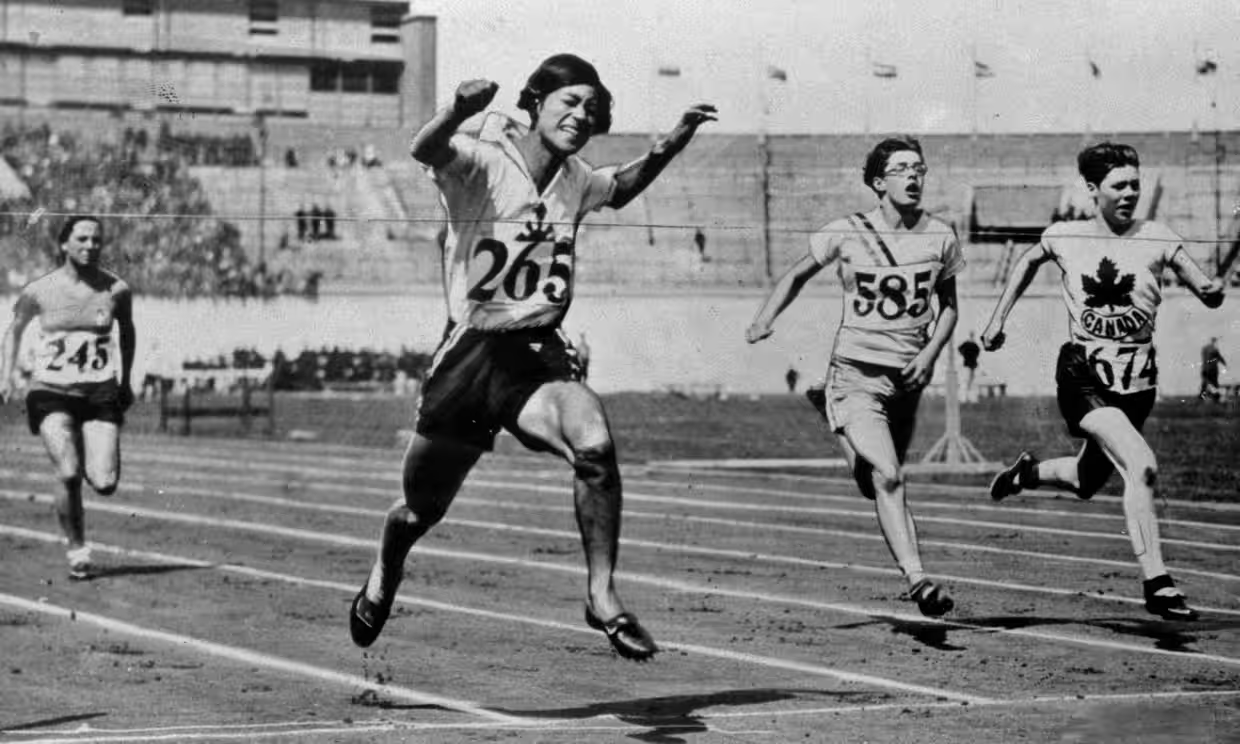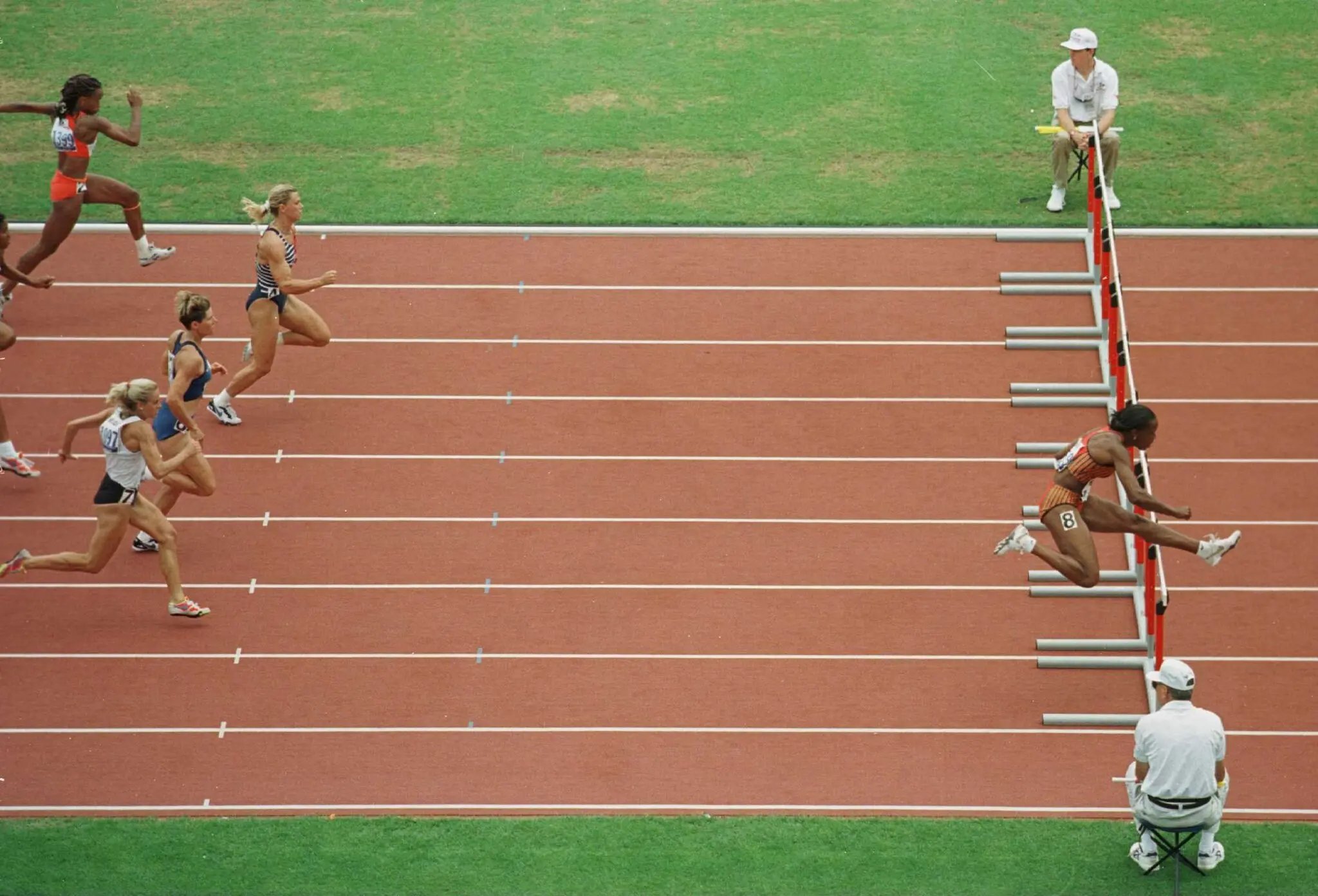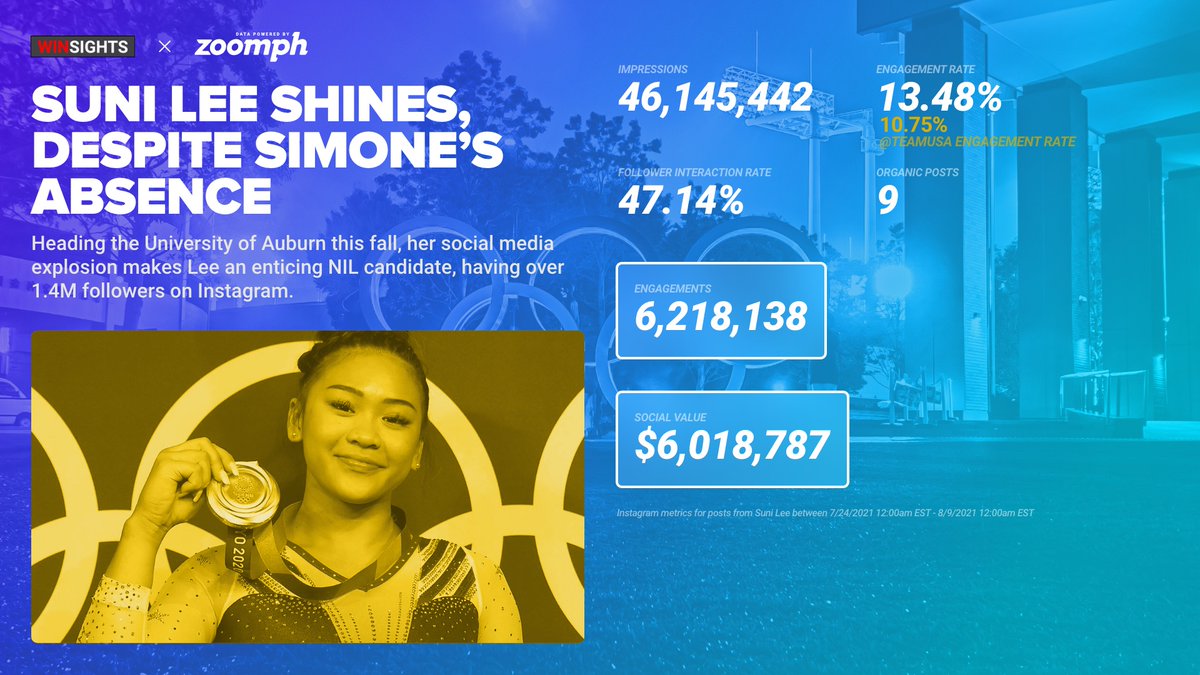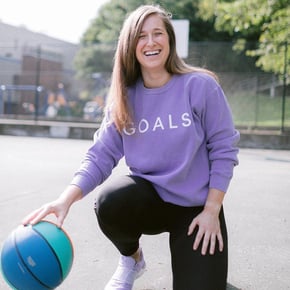(And it’s bad business to exclude them from competing in the Olympics.)
.png?width=793&height=414&name=blog%20graphics%20(5).png) Source: Parity
Source: Parity
When you think about the world’s largest sporting events, most of them are actually men’s sporting events. However, the Olympics have always been a bright spot for women athletes - serving as a (somewhat) equitable global platform for women to compete and have their stories told. During the Olympics, women typically receive a large share of media coverage (59.1% of primetime coverage during Tokyo 2020, compared to the standard 5% of linear coverage that women typically receive) and for the first time in Olympic history, the Paris 2024 Games will achieve numerical gender parity on the field of play, with the same number of female and male athletes participating.
When it comes to gender parity in major sporting events, the Olympics are probably the best example that we have of a gender equitable playing field.
However, while the Olympics have long served as an important platform for women athletes, the Games have been far from perfect when it comes to the inclusion of women in certain events. While the first modern Olympics were held in Athens in 1896, it wasn't until 1928 that women were allowed to participate in their first track and field events, and according to Sean Ingle of The Guardian, it wasn’t until 1984 that women were allowed to run in an Olympic marathon, until 2000 that women were allowed to compete in pole vault events; and it wasn’t until 2008 that the women’s steeplechase was added to the Games.

Japan’s Kinue Hitomi winning a 100m qualifying heat at the 1928 Olympics Games in Amsterdam. Hitomi helped break a major barrier in women’s sport by winning the first silver in the 800m final. Image source: The Asahi Shimbun/Getty Images
To this day, there are still Olympic events that women athletes are excluded from on the basis of gender. One of the more glaring examples is the Decathlon.
Currently, women athletes are only permitted to compete at the Olympic level in the seven-event Heptathlon, while the 10-event Decathlon has been traditionally reserved only for male athletes. For a long time, this exclusion has been justified by outdated stereotypes and misconceptions about women's physical capabilities. Naysayers have argued that women are not suited for the intense physical demands of the Decathlon, perpetuating gender biases that have been around for decades.
And what’s even more frustrating, is that Decathletes who take the podium at the Olympic Games are largely lauded as the “world greatest athletes” - which means, by their nature, women have been boxed out from earning the title of the world’s greatest athlete.
(Athletes like Jackie Joyner-Kersee, who won gold in the Heptathlon multiple times at the Summer Olympics, and whose 7,291 point score in the 1988 Olympics remains the women’s world record in the Heptathlon.)

Jackie Joyner-Kersee clearing a barrier in the heptathlon 100-meter hurdles at the U.S. track and field Olympic trials in Atlanta in 1996. She made the team but, because of a hamstring injury, could not finish the heptathlon at the Games that summer. Image source: Gray Mortimore/Getty Images
For years, women athletes have led advocacy movements to fight against the discriminatory policies surrounding the Decathlon. World Champion athletes like Jordan Gray and Lauren Kuntz are working to bring the women’s Decathlon and the Icosathlon (AKA the Double Decathlon) to the Olympics and large national competitions. Their efforts, coupled with the broader push for gender equality, have prompted discussions within the International Olympic Committee (IOC) and World Athletics about the need for inclusivity.
While progress has been made, the Decathlon remains a glaring example of the persistent gender gap in Olympic competition.
Ensuring that all athletes, regardless of gender, have the opportunity to compete on the world's largest stage is not only the right thing to do, the data shows that it’s also good for business. During the 2020 Olympic Games, Zoomph found that women athletes largely preoccupied the online conversations.

For example:
🏅 Gymnast Sunisa Lee generated $6M in social value from 9 Instagram posts with an unprecedented 47% follower interaction rate.
🐐 Simone Biles' tweet thanking fans for supporting her decision to withdraw that generated over 100 million organic impressions and $2.7 million in social value.
🏊♀️ Katie Ledecky generated 8.5 million organic impressions from her Instagram, with an engagement rate of 12.83% - which was a full 2 points higher than the official Team USA's Instagram engagement rate.
It’s past time for women to be permitted to compete in the Olympic Decathlon, and for the Games to be truly an equal playing field. The reality is that women athletes generate big business in sports and specifically for the Olympics Games.
Excluding them from Olympic events - like the Decathlon - is simply bad business.
🏆 Looking to get involved with the grassroots movements to create more equality in track & field? Be sure to check-out Ico For All & Let Women Decathlon. Independent organizers will be hosting the 2024 Women’s Decathlon World Championship and Icosathlon Championships at the SPIRE Institute in Geneva, Ohio on August 3rd & 4th, giving women Deathletes the chance to compete during the 2024 Olympics.
About Caroline Fitzgerald
Caroline Fitzgerald (she/her) is a contributing writer for Parity and the CEO & Founder of GOALS - a women's sports marketing consultancy & media platform. Caroline launched GOALS in 2020 after recognizing that there was an opportunity to help women's sports teams sign more sponsorship deals - and help brands see the business value around investing in women's sports. GOALS also produces the leading women's sports business podcast - The Business Case for Women's Sports, which is presented by Ally. For more information on GOALS, visit https://goals-sports.com or follow on Instagram, LinkedIn, Facebook, X (formerly Twitter) and Threads.
About Parity
Minority-founded in 2020, Parity's mission is to close the gender income and opportunity gap in professional sports. By developing high-impact collaborations between brands, professional women athletes and their fans, Parity has proudly put more than $2 million in the pockets of women athletes, attracting dozens of brands to the movement in the process. The platform offers connections to more than 1000 women athletes from 80+ sports, including well over 200 Olympians and Paralympians. For more information on how to tap into the rapidly rising influence and popularity of women athletes, visit https://paritynow.co or follow us on Instagram, LinkedIn, Facebook, X (formerly Twitter) and Threads.

.png?width=300&name=blog%20graphics%20(5).png)


